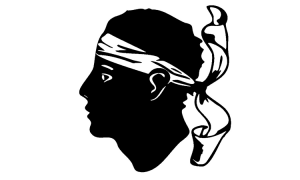Language/Corsican/Grammar/Pronouns
Hi Corsican learners! 😊
In this lesson, we are going to focus on Corsican pronouns! Pronouns are very important in any language because they allow us to avoid repetition and make our speech more fluent. Let's get started!
What are Pronouns?
Pronouns are words that replace nouns. They make our sentences clearer and more concise. Instead of repeating the same noun over and over again, we can use a pronoun. For example, instead of saying "Maria went to the store. Maria bought bread. Maria paid with cash." we can use pronouns and say "Maria went to the store. She bought bread. She paid with cash."
In Corsican, we have different types of pronouns such as personal, subject, object, possessive, reflexive and demonstrative pronouns. In this lesson, we will focus on personal and possessive pronouns, as they are the most commonly used.
Personal Pronouns
Personal pronouns are words that represent a person or a group of people. In Corsican, there are two types of personal pronouns: subject and object pronouns. We use subject pronouns to replace the subject of the sentence, while we use object pronouns to replace the object of the sentence.
Here's a table that shows the personal pronouns in Corsican:
| Corsican | Pronunciation | English |
|---|---|---|
| Io | [ˈjo] | I |
| Ti | [ti] | You (singular, informal) |
| Elle | [ˈɛl.lɛ] | She |
| Ellu | [ˈɛl.lu] | He |
| Noi | [ˈnɔj] | We |
| Voi | [ˈvoj] | You (plural, formal or informal) |
| Elle | [ˈɛl.lɛ] | They (feminine) |
| Elli | [ˈɛl.li] | They (masculine) |
For instance:
- Person 1: Io parlu Corsu. ([I speak Corsican.])
- Person 2: Ancu mi parli Corsu? ([Do you speak Corsican too?])
Note that in general, Corsican people are very welcoming to non-native speakers, and they will appreciate the effort to learn their language. To improve your Corsican Grammar, you can also use the resources available on the Polyglot Club website. Find native speakers and ask them any questions!
Possessive Pronouns
Possessive pronouns are words that show possession. In Corsican, possessive pronouns agree in gender and number with the noun they replace.
Here's a table with the possessive pronouns in Corsican:
| Corsican | Pronunciation | English |
|---|---|---|
| Meu | [ˈmɛw] | Mine |
| Tocca | [ˈtɔk.ka] | Yours (singular, informal) |
| Sua | [ˈsu.a] | Hers / His |
| Nostru | [ˈnɔs.tru] | Ours |
| Vossu | [ˈvɔs.su] | Yours (plural, formal or informal) |
| Loro | [ˈlɔ.rɔ] | Theirs |
For instance:
- Person 1: Hè stu libru toccu? ([Is this book yours?])
- Person 2: No, hè stu libru meu. ([No, this book is mine.])
Summary
In this lesson, we learned about personal and possessive pronouns in Corsican. Personal pronouns are words that can replace a person or a group of people, while possessive pronouns show possession. Remember that in Corsican, possessive pronouns agree in gender and number with the noun they replace.
Sources
➡ If you have any questions, please ask them in the comments section below.
➡ Feel free to edit this wiki page if you think it can be improved. 😎
Related Lessons
- How to Use Have
- Plurals
- Adjectives
- Conditional Mood
- Questions
- Future Tense
- How to Use Be
- Negation
- Give your Opinion

